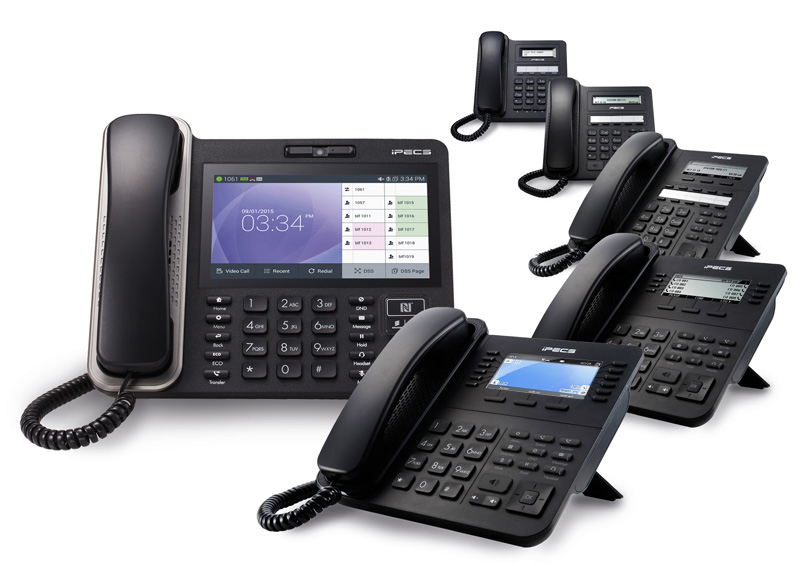
Alongside your daily tasks of managing IT infrastructure and assisting colleagues, the task of sourcing a new phone system can seem like an unwelcome extra burden. However, by choosing the right phone provider, this process can be made surprisingly easy. It can also deliver far greater efficiencies and cost savings, future-proofing your company’s communications and resolving all those minor frustrations that can stem from outdated and expensive hardware. In short, an end-of life (EOL) phone system is an opportunity disguised as a crisis.
To ensure that a new phone system is optimised for your company’s requirements these are the key points you should consider:
Even if your colleagues are all based in one location, there is still a great deal to consider such as how many employees need to be catered for and how they communicate with customers. Add in satellite offices or remote-working arrangements and this picture becomes far more complicated. For hardwired phone systems, you need to consider what rights you have to modify each building (depending on whether it’s owned outright, leased or sub-let), and whether your ideal phone system can be achieved within these restrictions.
The traditional problems of limited ISDN availability (and landlords refusing to allow the installation of unsightly cabling) can now be resolved with cloud-based SIP trunking. This creates a virtual comms room online, with hosting handled off-site. Staff can simultaneously retain their current phone numbers and gain far greater flexibility without hardware filling the building because Voice over IP systems use the same cables as broadband connections.

It’s rare for every member of a company’s workforce to require the exact same phone functionality. Needs will usually vary from one department to the next – recording facilities for customer service calls, conference calling for the MD, and landline-to-mobile diverts for regional reps.
The best phone and data providers will tailor a package around your company’s unique requirements, rather than shoehorning you into a one-size-fits-all contract and the internet is ideal for creating bespoke network solutions.
A truly effective business phone contract will deliver much more than one fixed number for each employee. It will consider the volume and nature of calls – the percentage of international numbers dialled, for instance, or how many hours of talk time are used in a typical month. Your business phone service provider should be able to handle any amount of traffic without issue – even if every employee tries to dial out simultaneously – while avoiding punitive charges for exceeding arbitrary usage quotas.
This might sound like stating the obvious, but if your existing phone contract is drawing to a close, or is about to lose supplier support, think about any issues that have been reported by colleagues in recent months. Consider the efficacy of services like voicemail and call redirecting – could they be better and if so, how? Older phone systems often struggle with the demands of modern businesses, but what are the specific issues that cause your colleagues problems?
Having identified these frustrations, a new system can then be tailored around your findings, to deliver responsive solutions.

A hardwired infrastructure can be expensive to install and maintain, but the quiet revolution in cloud hosting can lower costs while simultaneously raising service levels. Session Initiation Protocol trunking (SIP) can be set up and expanded far more affordably, because everything takes place online, and potentially unlimited bandwidth ensures this system can be expanded as and when needed. New services can be added with ease and hosted packages eliminate any need for comms rooms or on-site hardware, while still providing round-the-clock customer service and a global infrastructure.
Some companies have a pressing need for flexibility from their phone systems: In any of these scenarios existing contracts may be found wanting whereas a web-hosted phone system can deliver the flexibility you need.
This is particularly true for companies with short-term leases on their existing premises, where relocation might be in the pipeline. Online systems are not tied down to a physical location, which makes them far more portable and flexible.
ISDN lines were once the default option for phone calls but today cloud hosted systems are becoming a preferred alternative. Indeed, many calls made using traditional architecture are already being converted to IP, since the same cabling can usually be used for telephony and internet access. A hosted system enables every location (mobiles, home offices, etc) to become part of a single cohesive network, which is regularly upgraded with the latest communication offerings. Hosted systems are also less prone to disasters than their hardwired forefathers, and they can be expanded far more easily.
Once these issues have been considered and decided upon, the only remaining step is to find a dependable and affordable provider of voice, mobile and data services, with global reach allied to local expertise. They can guide you through the transition process and ensure not just continuity of service, but demonstrable improvements in the calibre and dependability of your company’s communications.
The need to replace your phone’s EOL systems can be a blessing in disguise…
© rhm telecommunications 2025